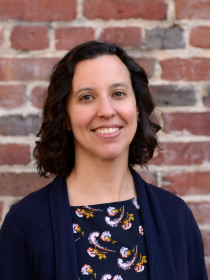Connect with Katrina
About Katrina
Kimport has three primary areas of research expertise. 1) She is an expert on abortion and contraception. Most recently, she has closely examined women’s experience of third-trimester abortion. She has also studied preabortion ultrasound viewing and women’s social and emotional experience of abortion (e.g. unpacking “abortion regret”). 2) She is an expert on same-sex marriage in the U.S., with an emphasis on gay and lesbians’ experiences of legal marriage. 3) She is an expert on social movements related to abortion rights and marriage equality in the U.S. She is also knowledgeable about the socio-legal aspects of abortion and same-sex marriage, including how the law is used to regulate both practices and how that translates into people’s lived experience.
Contributions
Why Women Seek Abortions after 24 Weeks of Pregnancy
What Happens when Women Planning Abortions View Ultrasounds?
In the News
Publications
Examines whether and how the financial, logistical, and emotional costs associated with forced abortion travel can be reduced, identifying structural and interpersonal actions that can improve patient experiences, even in the absence of policy change.
Punctures the myth that American women have full autonomy over their reproductive choices, exposing the structural, cultural, and experiential factors that can make choosing abortion impossible–especially for those who experience racism and class discrimination. Gives voice to women whose experiences are often overlooked in debates on abortion, illustrating how real reproductive choice is denied, for whom, and at what cost.
Examines the association of women receiving or being denied a wanted abortion with their children’s health and well-being.
Examines the mental and emotional aspects of contraception—and how clinicians counsel women in ways that normalize and entrench the feminization of responsibility for all aspects of preventing pregnancy.
